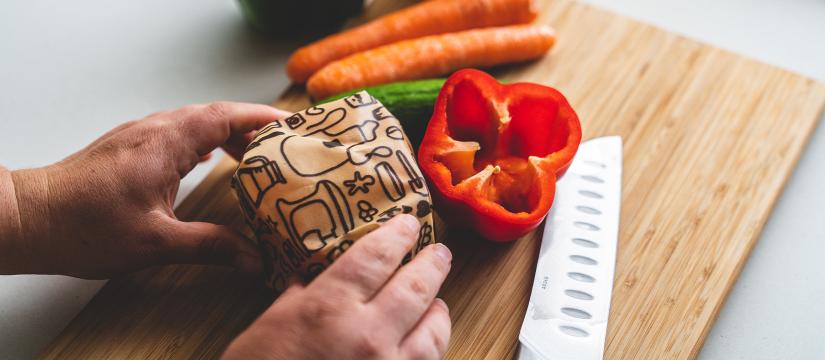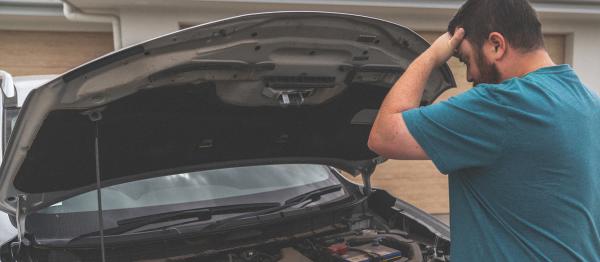
Eco-friendly ideas for every day
The human impact on our environment is all around us, and the issue of waste is one of the biggest challenges our society faces today. How can we make a difference by making better choices to help the environment?
Australians produce around 540kg of household waste per person per year, which equates to over 10kg each, every week. Of the estimated total of 67 million tonnes of waste Australians generated in 2017, just 37 tonnes were recycled, leaving 21.7 tonnes dumped in landfill.
Then there’s the rubbish that doesn’t even make it to landfill, instead finding its way into sewers, drains, public spaces and waterways. According to Clean Up Australia, an estimated 130,000 tonnes of Australian plastic winds up in our waterways and oceans every year, polluting the habitats of animals, fish and birdlife and damaging fragile ecosystems.
So where do we begin? How do we make a positive difference to a problem that seems so big? The solution starts with all of us, and with a commitment to make better choices for the sake of our environment and the future of our planet.
It’s time to step up
Clean Up Australia is one of the country’s most recognised and trusted environmental organisations and has been helping Australians to take practical, everyday environmental action for over 30 years. Clean Up Australia Day is now the nation's largest community-based environmental event, which has also evolved into an organisation that encourages Australians to step up and live more sustainably all year round.
Why your choices matter
It’s the choices we make every day that, while seemingly small, collectively make a significant impact on the environment. From your choice of household cleaning products to the transport you choose for your daily commute, we can all make better choices to lessen our impact on the environment. So we’ve put together some easy ideas we can all try to help the environment, every day.
Refuse – By refusing a plastic shopping bag, that’s one less bag that could end up in landfill. Say ‘no thanks’ to plastic straws. Avoid plastic packaging for your fruit and vegetables, one of the biggest culprits in landfill today.
Reduce – Reduce your waste by being more mindful of what you consume. For example, only buy fresh produce a few days at a time, so you have less spoilage. Try to support companies and manufacturers who use sustainable materials and practices.
Reuse – With over a billion single-use coffee cups ending up in landfill every year in Australia alone, a reusable coffee cup for your morning heart-starter is a more eco-friendly choice. In fact, some cafés offer a discount if you bring your own cup, so you could save money, too. Invest in a refillable water bottle and carry a reusable bag with you to avoid single-use plastics.
Recycle – While most of us recycle our containers and cardboard, there are lots of other household items that can also be recycled, such as aluminium foil, soft plastics (the ones you can scrunch into a ball - most supermarkets offer recycling bins for these), mobile phones and even clothing and textiles. To find out where you can recycle these items and others, visit the Clean Up Australia recycling page.
Compost – When food scraps are sent to landfill, they can decompose and emit powerful greenhouse gases such as methane. Instead of binning your food scraps, consider starting a compost or a worm farm to instead produce nutrient-rich soil – then you could even start your own veggie patch!
There are many other simple ways you can help the environment every day. Here are even more quick, easy ideas you and your family can try.
At work:
- Don’t drive to work if you can walk, ride or carpool.
- Recycle printer paper and print on both sides.
- Recycle ink cartridges properly, never just throw them in the bin.
- Use fewer office supplies and reuse them when you can.
- Conserve power. If you leave printers, monitors and chargers on standby all day, they passively consume electricity that costs you money and wastes significant energy over time.
At home:
- Replace plastic wrap with reusable beeswax wraps and use compartmentalised bento-style boxes for kids’ school lunches.
- Save water. Don’t leave the kitchen tap running while you do the dishes. If your hot water takes time to kick in when you’re in the shower, keep a bucket in your shower to catch the cold water, then use it to water your pot plants, garden and lawn.
- Choose eco-friendly cleaning products and reusable cloths.
Whatever you do, the most important thing is to get started. Once you make a few small eco-friendly changes you might be motivated to do more. So, get the whole family involved and make it a fun challenge to see how many environmentally sustainable improvements you can make around your home and workplace. Every little bit counts and is ultimately a step in the right direction.



